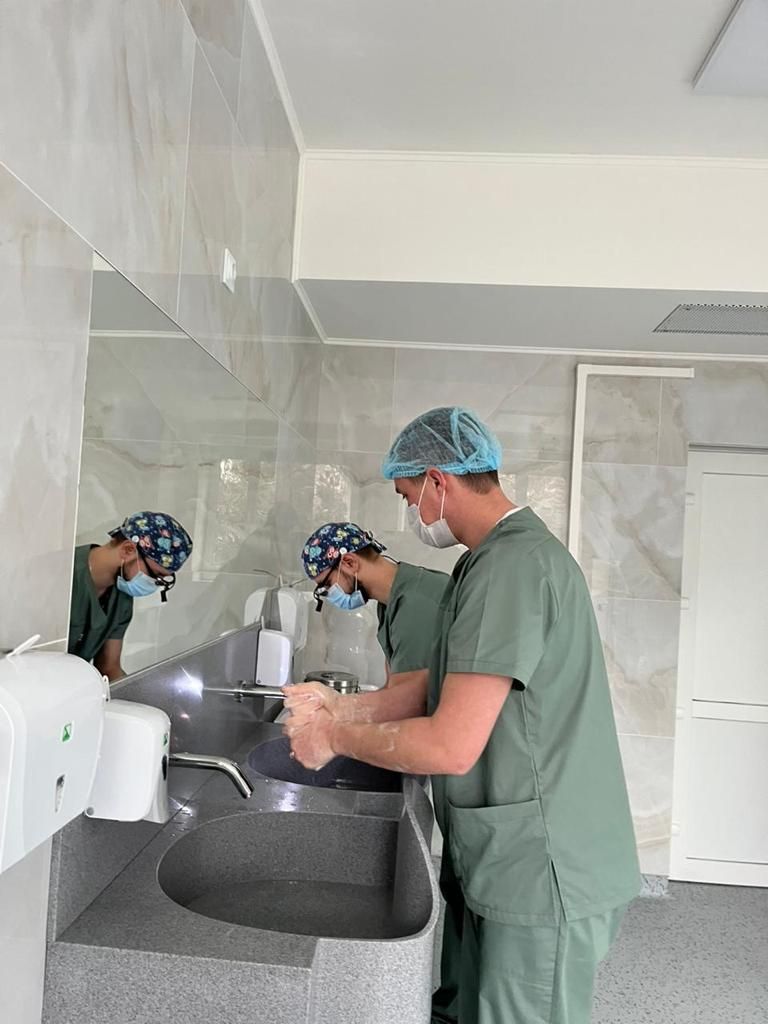16.04.2020
How to properly prepare for a GENERAL BLOOD ANALYSIS
Blood is taken from 8 to 10 am, with minimal physical activity for 20-30 minutes before the test.
Blood is taken before all diagnostic and therapeutic procedures: ultrasound, ECG, radiography, and physiotherapy procedures.
Capillary blood is used for hematological tests in the CDL. Blood is taken from a finger in the hematology department of the CDC (room 214), in the inpatient department, or during a call - at home.
Sterile capillaries are used for blood sampling.
The patient is given a referral by the attending physician, which indicates the surname, name, patronymic, year of birth, medical history number, department, diagnosis, name of the referring physician, and type of test.
In the laboratory, before the capillary blood sampling, each patient is assigned a serial number corresponding to the number of the tube with biomaterial and the passport part of the test result form is filled in.
Conditions of patient preparation for the biochemical blood test
To obtain the results of the examination with reliable data, the patient must carefully prepare for the analysis and follow all the recommendations of the doctor.
ПThe patient's preparation consists of the implementation of the following recommendations:
It should be noted that in some cases when examining certain blood parameters, preparation for blood donation may require additional restrictions.
If the lipogram is performed on a patient who has had a myocardial infarction, the blood should be taken either within 24 hours after the infarction or 3 months after the infarction.
CRITERIA FOR REFUSAL TO ACCEPT BIOLOGICAL MATERIAL FOR TESTING BY THE CLINICAL DIAGNOSTIC LABORATORY
1. Lack of marking on the tube (name, initials, department).
2. Mismatch of labeling between the data on the referral and the label on the tube.
3. It is impossible to read the patient's data on the referral or label.
4. Incorrectly filled referral (lack of information in some columns: department, number of medical history, name of the doctor, signature of the procedural nurse, name of the study).
5. Late delivery of biomaterial for routine tests to the laboratory.
6. Failure to comply with the terms and conditions of storage of the material until delivery to the laboratory (freezing, overheating, loss of part of the material during overturning, etc.)
7. The taken biomaterial is in an inappropriate tube.
8. Presence of clots in tubes with the anticoagulant.
9. Insufficient amount of biomaterial for analysis.
10. The stability time of the analyte in the sample has expired.
11. The material is taken in vacuum tubes that have expired.
12. After centrifugation, the most frequent failure criteria are hemolysis and cheilosis.
How to properly prepare for a GENERAL BLOOD ANALYSIS
Blood is taken from 8 to 10 am, with minimal physical activity for 20-30 minutes before the test.
Blood is taken before all diagnostic and therapeutic procedures: ultrasound, ECG, radiography, and physiotherapy procedures.
Capillary blood is used for hematological tests in the CDL. Blood is taken from a finger in the hematology department of the CDC (room 214), in the inpatient department, or during a call - at home.
Sterile capillaries are used for blood sampling.
The patient is given a referral by the attending physician, which indicates the surname, name, patronymic, year of birth, medical history number, department, diagnosis, name of the referring physician, and type of test.
In the laboratory, before the capillary blood sampling, each patient is assigned a serial number corresponding to the number of the tube with biomaterial and the passport part of the test result form is filled in.
Conditions of patient preparation for the biochemical blood test
To obtain the results of the examination with reliable data, the patient must carefully prepare for the analysis and follow all the recommendations of the doctor.
ПThe patient's preparation consists of the implementation of the following recommendations:
It should be noted that in some cases when examining certain blood parameters, preparation for blood donation may require additional restrictions.
If the lipogram is performed on a patient who has had a myocardial infarction, the blood should be taken either within 24 hours after the infarction or 3 months after the infarction.
CRITERIA FOR REFUSAL TO ACCEPT BIOLOGICAL MATERIAL FOR TESTING BY THE CLINICAL DIAGNOSTIC LABORATORY
1. Lack of marking on the tube (name, initials, department).
2. Mismatch of labeling between the data on the referral and the label on the tube.
3. It is impossible to read the patient's data on the referral or label.
4. Incorrectly filled referral (lack of information in some columns: department, number of medical history, name of the doctor, signature of the procedural nurse, name of the study).
5. Late delivery of biomaterial for routine tests to the laboratory.
6. Failure to comply with the terms and conditions of storage of the material until delivery to the laboratory (freezing, overheating, loss of part of the material during overturning, etc.)
7. The taken biomaterial is in an inappropriate tube.
8. Presence of clots in tubes with the anticoagulant.
9. Insufficient amount of biomaterial for analysis.
10. The stability time of the analyte in the sample has expired.
11. The material is taken in vacuum tubes that have expired.
12. After centrifugation, the most frequent failure criteria are hemolysis and cheilosis.


(с) 2024